Spring 2006
Brochure
The Beijing Political Economy Seminar is a cross-disciplinary program in which students analyze the economy of China, investigate the government institutions that develop and shape Chinese policy, and meet the people who make policy work. The seminar emphasizes on-site activity, with visits to economic agencies, government organizations, industrial sites, and rural locations. In the 2006 seminar, plans are to make week-long stopes in Thailand and Vietnam to place China's political economy in an Asia-wide context.
The Topic: Social, Economic, and Political Change
The economies of East Asia are among the most rapidly changing in the world and, as we have seen during the past several years, their health has a direct impact on the rest of the world. China sits at the heart of this growth and its economy--according to many analysts--will become the world's largest in several decades, surpassing that of the United States.
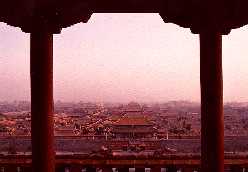
Chinese society is changing just as rapidly. On the one hand, China is moving from traditional to more modern kinds of social organization. At the same time, the country as a whole is moving from a socialist system to a more open form of market economy. But these changes are not without risk, and Chinese politicians and economists know well the disastrous experience of the former Soviet Union. The most important question becomes how to change without the disintegration and "meltdown" that occurred in Russia and other parts of the world.
Seminar participants will study this change firsthand by involving themselves directly in three kinds of activity:
- Economic activity--visiting and evaluating township enterprises, state factories, rural farms, and foreign joint ventures;
- Social and cultural activity--traveling across China, visiting schools and hospitals, working with Chinese college students, and participating in Chinese cultural life.
- Political activity--visiting national agencies, provincial offices, regional centers, and rural organizations, and meeting officials and workers in all of these;
Studying and Traveling
The seminar combines experiential and classroom learning, with a heavy emphasis on travel and first-hand observation. The seminar group will make three kinds of trips.
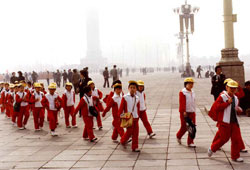
(1) Stops in Thailand and Vietnam at the beginning of the Seminar and Hong Kong at the end
The Chinese economy cannot be removed from its larger Asia context. In order to compare the pace and direction of China with other parts of the region, we will make stops in Thailand, Vietnam and Hong Kong.
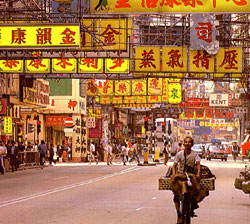
(2) Visits to sites around Beijing The most exciting developments in economic policy-making and execution are occurring in and around Beijing--which is the political and cultural capital of China. As part of our classroom work, the seminar will visit factories, farms, enterprises, trade units, think tanks and government organizations. The group will also tour some of the spectacular sites around Beijing, such as the Great Wall, the Forbidden City, Tiananmen Square, the Temple of Heaven, the Summer Palace, etc.
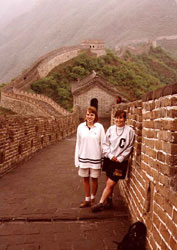
(3) Trips across China
The Chinese economy is not developing in an even and uniform manner, and herein lies one of the great problems for Chinese decision-makers. Rural areas are developing in ways that differ from urban areas, and sites of industrial development are moving at a pace that differs from that of more recently developed centers. Shanghai is moving in ways that seem different than the direction taken by Beijing or Chengdu.
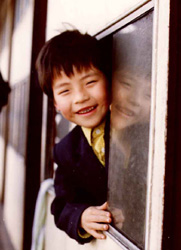
In China, the seminar group will travel to different centers of economic development that differ dramatically from the areas we will see around Beijing. In about the 4th week of the program, the seminar group will take a long 10-14 day trip across Central and southern China. Tentatively (with a real emphasis on the "tentative" at this stage of our planning) the group will travel down to the Shanghai-Hangzhou area, move up the Yangzi into the more central parts of China, and visit some of the rural areas in the central-western part of the country around Chongqing and Chengdu. Later, we will travel to the areas around Ningxia Province in the Northwest.
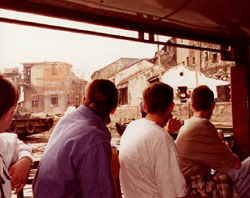
(4) Individual Travel
In addition to the seminar travel listed above, students will travel on their own or in small groups during our ten-day mid-term break. Domestic train travel is relatively inexpensive in China and during past seminars students have moved widely across the country during this mid-term break. Some of these past trips include traveling to the famous mountain areas around Guilin and then floating down the beautiful Li river, hiking in Inner Mongolia, biking from Beijing to the ocean, mountain climbing in the south, relaxing on Hainan island, and trekking though some of the semi-tropical tribal regions in the far south.
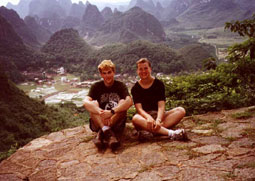
Post-seminar travel
Our airline tickets will allow individual travel in East and Southeast Asia. Our last stop will be Hong Kong, and from there seminar participants will be able to strike out (if they wish) in any number of directions before returning to the United States.
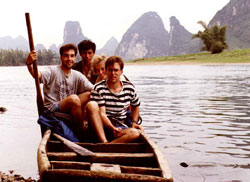
Itinerary 2005-06
(Still highly tentative)
Seminar begins: Friday 17 March
(day following Winter final exams)
Week One: Thailand
Arrive in Bangkok, stay several nights in Bangkok hotel. Then head north to Changmai. Move on to rural areas, develop basis for comparison with China’s rural development.
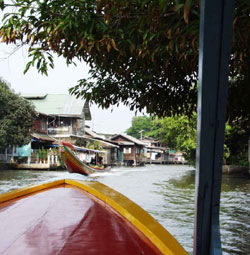
Week Two: Vietnam
Arrive in Vietnam, spend several days in Hanoi. In Hanoi, examine industrial strategies, compare with Chinese industrial development. Group splits into three sections---one to highland minority areas, one to lowland farm areas, one to Halong Bay. In rural Vietnam, emphasis again on developing basis for comparing urban/rural development with China’s model.
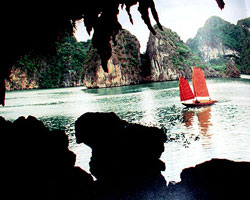
Week 3: Beijing
Group flies to Beijing, settles in at UIBE. Meet pen pals, move around Beijing, learn about ways of China’s capital. In Beijing, formal classes Mondays and Wednesdays at UIBE, field trips Tuesdays and Thursdays. Classes over at noon on Thursday, resume Monday morning.
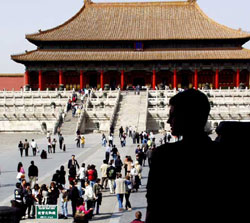
Week 4: Beijing
Deeper involvement in Beijings economic and political life, field trips to economic organizations and political offices around city. End of week, depart for trip across central China.
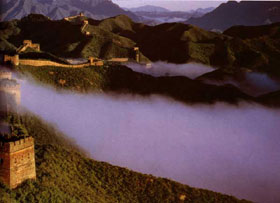
Week 5: Central China
Long trip to Shanghai, Suzhou. Up the Yangzi river, Three Gorges Dam. Western China, probably Chongqing and Chengdu. Fly back to Beijing.
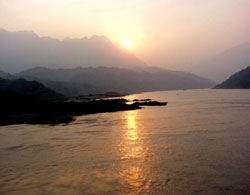
Week 6: Beijing/Ningxia
Return to capital city, work on questions dealing with economic and political development. On Thursday, travel to Yinchuan in Ningxia province.
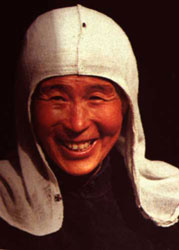
Week 7: Ningxia/Beijing
In Ningxia, several days in provincial capital, then out into countryside, develop understanding of rural development in China’s northern interior. Return to Beijing at beginning of week. Adjourn for Spring Break on Thursday.

Week 8: Spring Break
Eleven day Spring Break, beginning on Thursday of week 7. Travel (by air, rail, foot, camel) across China. Return on Sunday.
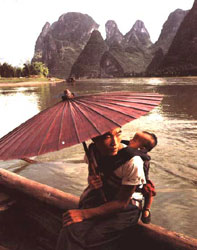
Week 9: Beijing
Class work at beginning of week, preparation for Simulation Exercise in Week 10. On Friday, travel to Tianjin for combination weekend break, beginning of Simulation.
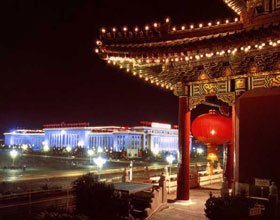
Week 10: Beijing
First days of the devoted to Simulation exercise in Beijing. At end of week, pack up, say good bye to Chinese friends, final meetings.
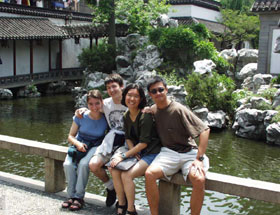
Week 11: Hong Kong
Fly to Hong Kong, stay on Kowloon side. Tour Hong Kong island, meet with specialists on Chinese economic development. Travel into Shenzhen and Guangdong province.
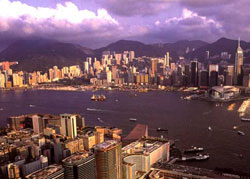
Seminar adjourns: Wed., May 31
In Northfield:
Exams: June 2-5
Graduation: June 10
Courses (18 credits)
ECON./POL. SCI. 382 (6 credits)
Chinese Economy in Transition
An analysis of the Chinese economic system and an examination of the policies that have guided Chinese economic development. Special emphasis is placed on the changes that have occurred during the past ten years. After studying Chinese micro- and macro-economic policies, students will examine heavy and light industry, Chinese commercial organizations, rural industry, and agriculture. Visits to factories, a rural farm, commercial enterprises, and special economic zones. 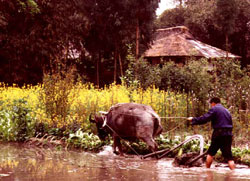
POL. SCI. 381 (6 credits)
Politics of Economic Development
This course focuses on an examination of the policy choices made during the last ten years, examines the institutions that structure these decisions, and look at the people most responsible. Students will learn how public policy decisions are made and visit the most important institutions responsible for these decisions. Visits to (and meetings with members of) the Bank of China, the Chinese Academy of Social Sciences, the foreign trade ministries, and a series of political organizations.
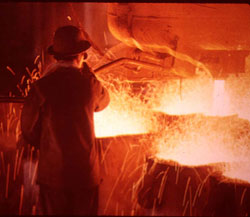
POL. SCI. 379 (3 credits)
Chinese Decision-Making
As part of a joint assignment for both the Economics and Political Science courses listed above, students will participate in a group project that culminates in a simulation exercise To prepare for this exercise, seminar participants will be divided into small groups. Each group will investigate in depth one aspect of the Chinese economy as the seminar visits enterprises, moves across Beijing, travels to different parts of China, and talks to citizens and officials. Building on this specialized expertise, the seminar members will take part in an extended policy-making simulation exercise.
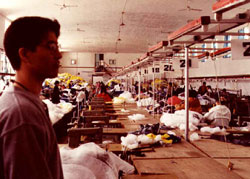
POL. SCI. 378 (3 credits)
Chinese Social and Political Institutions
On-site examination of some of the important institutions that shape Chinese social, economic, and political life. Class meets once a week and emphasis is on spending an extended period in one institution for each meeting, learning how the institution works, and discussing how it affects Chinese economic and political activity. Final project: photo essay.
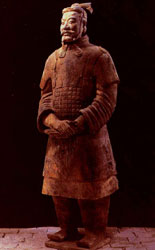
EXTRA, NON-CREDIT COURSES
If there is a desire on the part of seminar members, we will organize specialized non-credit courses. In the past, these have included courses in Chinese calligraphy, TaiQi, martial arts, hiking, and the like. Organization of these courses is completely dependent upon sufficient student interest and availability of Chinese instructors.
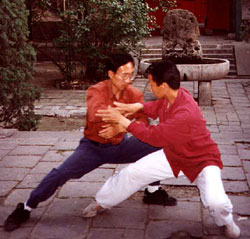
Living
The Location
The seminar will have as its home base the campus of the University of International Business and Economics (UIBE) in Beijing. The campus is located north of the embassy district, about a twenty minute drive from Tiananmen Square and the heart of downtown Beijing.
UIBE is China's most important school for training both undergraduate and graduate students for work in China's ministries, banking institutions, and trade organizations. Most of UIBE's faculty speak English and the school has suburb relations with China's economic organizations and policy-making institutions.
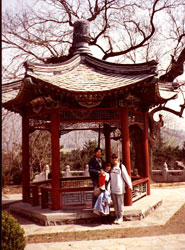
The UIBE campus is new and (by Chinese standards) modern. Most of the residence halls and classrooms have been constructed in the past ten years. The Chinese student body numbers about 2,500. Because of the students' interest in international business and economics they are, as a group, unusually outgoing and cosmopolitan.

Housing
In Beijing, Carleton students and faculty will live on the UIBE campus, take part in UIBE activities and live (by and large) in much the same manner as their Chinese counterparts. Carleton students will stay in double rooms in a residence hall on the campus of UIBE and can take their meals in the university's new student dining hall, but most will eat at one of the many small restaurants near the campus. (A "meal allowance" is provided.)
When the group travels in other Chinese cities, as well as in Thailand, Vietnam, and Hong Kong, seminar members will stay in modest hotels and eat in local restaurants.
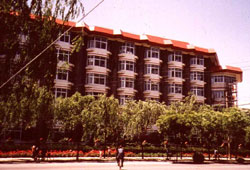
Chinese Students
Each Carleton student will have a UIBE "pen pal" during the term before departure. On arrival in China, these UIBE pen pals and Carleton students will share some social, cultural, athletic, and travel activities. The UIBE students might also introduce Carleton students to their friends and/or parents.
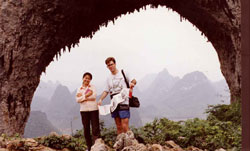
Applying
Eligibility
The seminar is based on the assumption that students from a wide variety of majors can contribute valuable cross-disciplinary perspectives. The political and economic focus of the seminar makes an interest in social science questions highly desirable--but not absolutely necessary.
The seminar directors recommend that students complete ONE of the following sets of courses before the seminar begins:
ECON 110 and 111
or
POL. SCI. 120, 170
or
HIST 152, 251, or 252
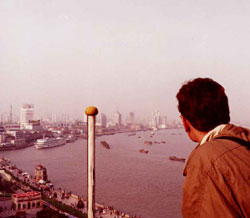
The "Bund" in Shanghai
While a knowledge of spoken Chinese would of course contribute to a student's enjoyment of the experience, fluency in Mandarin Chinese is NOT a requirement since all of the classes will be in English.
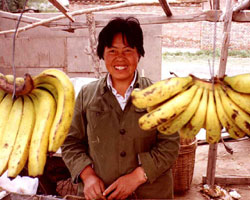
Costs
Students will pay the 2005-06 Carleton comprehensive fee--which will cover the cost of instruction, room, meals, some social events, and program related travel in China, Vietnam, Thailand, and Hong Kong. Students are responsible for round-trip airfare between the United States and Hong Kong, with stops in Japan and Beijing. Students are also responsible for books, course materials, personal expenses, and non-seminar related travel (such as during the vacation periods and on weekends).
Links
- Re-Confirmation Form
- Application Form: 2006 (complete on-line & print), or
- Application Form: 2006 (pdf file to print & complete)
- Recommendation Form
- Itinerary: 1999-2000
- Map
- Photos